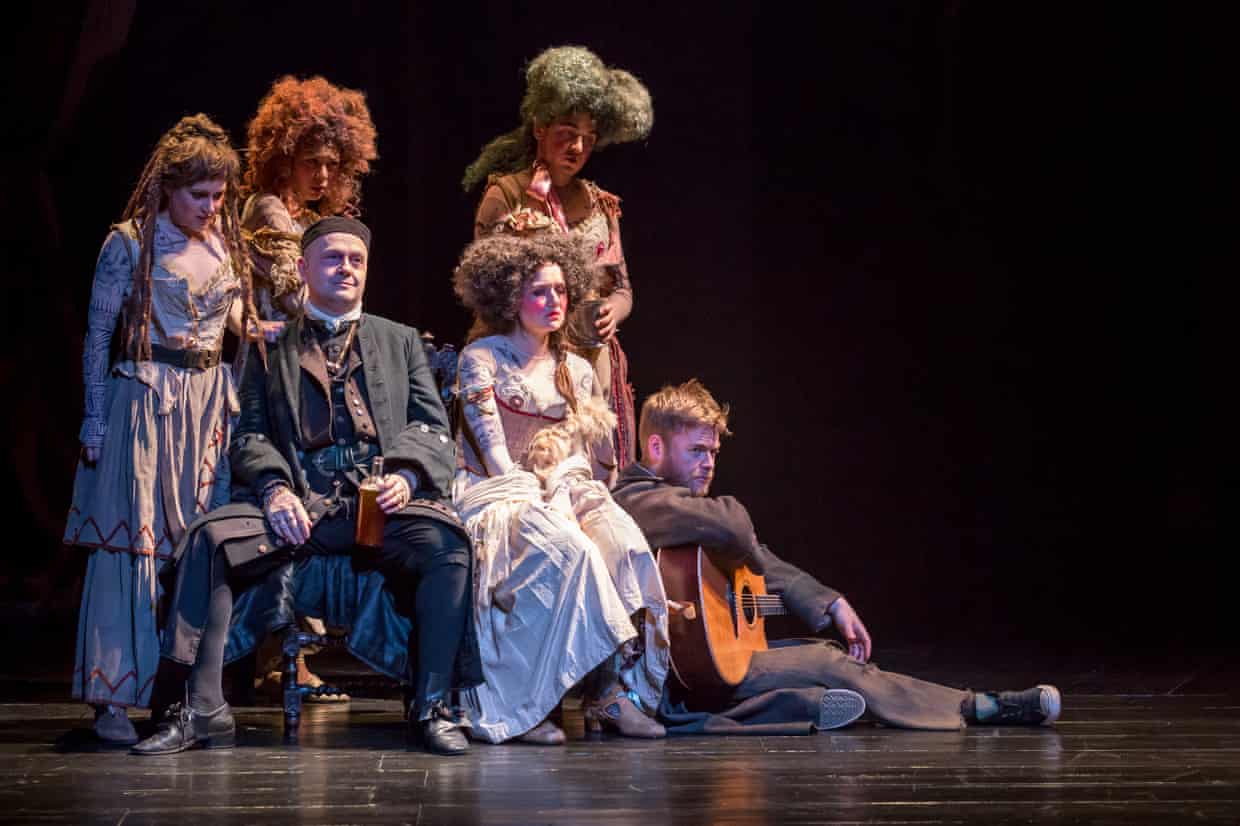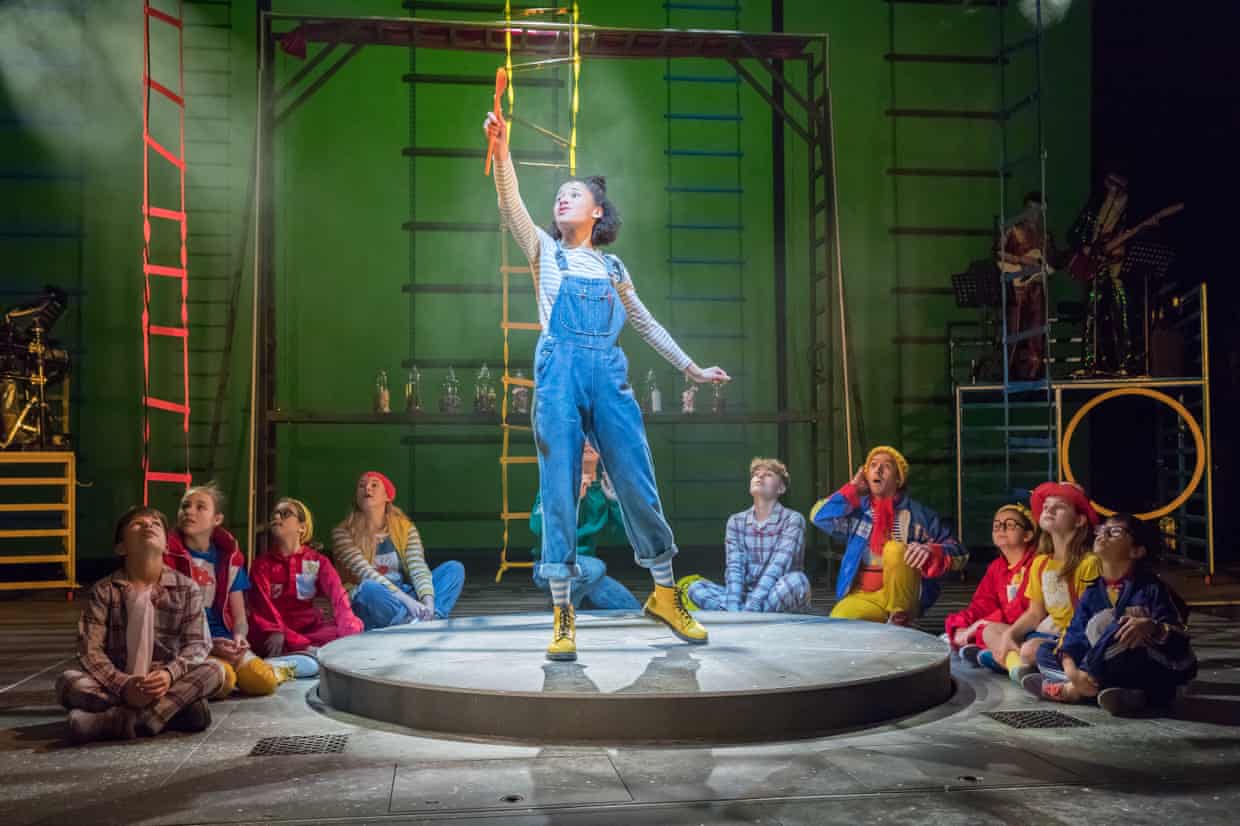
Theatre
'Thousands are in jeopardy': freelance theatre-makers count cost of crisis
When Chester Storyhouse asked how freelancers were faring under Covid lockdown, it was left ‘shocked and enraged’ at how perilous their finances are. Now it is calling for national action
by Chris WiegandThe Covid-19 crisis has exposed the precarious situation for the vast number of freelancers working in the theatre industry. “Thousands of them are now in jeopardy,” says Alex Clifton, artistic director of Chester’s Storyhouse. Clifton reached out to more than 50 freelancers who had worked on the theatre’s opening season in 2017 to ask after their current circumstances. He says he was “shocked, saddened and enraged” by their situations.
The responses from performers, technicians, musicians and others reveal the severe financial and emotional toll on freelance creatives who have an essential yet often unrecognised role in theatre. Many are fearful of how the pandemic will permanently change the industry. “I worry only the A-listers will be called upon,” writes one. “I worry audiences will be afraid to attend shows in large crowds for a long time. I worry that my job, the love of my life, won’t exist any more.” Another replies: “Once lockdown is lifted I’ll join the rest of the profession in trying to find work within the dire reality that fewer companies and venues will exist.”

Many of those who responded recognised that freelance careers in theatre are made from “guesswork and patchwork” and require a degree of “hustling”. “We are in many ways the most primed for precariousness,” wrote one actor. “We are used to having periods out of work and not qualifying for sick pay, but never in a world when the light at the end of the creative tunnel seems so dim.”
“If we get this moment wrong, these people will drain away from our industry,” says Clifton, who is calling on urgent assistance for freelancers from the government and the industry. Many freelancers have fallen between the cracks in the self-employment income support scheme (SEISS), principally because they rely on secondary income from often temporary PAYE work but also if they have been self-employed for under a year. Those who have benefited from SEISS have raised alarm about whether or not it will be extended in line with the furlough scheme to pay the wages of employees, which will now run until October.
“I teach to supplement my income and my part-time salary accounts for just over half of what I earn,” wrote a freelancer. “This makes me ineligible for government support. Most theatre-makers cannot survive without a second income stream.” Another said they did not qualify for SEISS because they hadn’t earned enough as a self-employed worker, but that they had been furloughed from their part-time job: “I am at least getting 80% of that monthly wage, however small.”

One freelancer said that on the day that shutdown was announced they had just finished the first day of rehearsals on a contract lasting several months. “We were immediately told, alongside news of the cancellation, that we would be retained on our full wage for three months in order to fulfil a repertoire of online content.” However, another shared a story that is more familiar: an unbroken run of work, lasting from March to October, disappeared over the course of a day. “My only current income for the foreseeable future is £60 a week,” wrote the responder. “I’m on universal credit too, and waiting for my one-off, taxable SEISS payment.”
Clifton is calling for employers to “unite behind the voice of the industry unions” and lobby government on freelancers’ behalf. He says that in the future, freelancers should be represented on every board of every arts organisation in the country. In the past, he says, they have been systemically underrepresented.
The artistic director worries that the industry is letting freelancers down by focusing too much on buildings rather than individuals. Storyhouse has created a hardship fund to support its regular pool of freelancers. The fund was enabled by the furloughing of more than 93% of staff, leaving a team of nine. He says Storyhouse itself is in “significant jeopardy” as 83% of its income is earned directly (3% comes from Arts Council England). Storyhouse spends £1.1m a year on freelance theatre practitioners. “That’s as much as we spend on our core team. Freelance workers are vital to our organisation. We need them to survive,” says Clifton.
One freelance theatre artist told Clifton: “I often say that doing what I do allows me to breathe. At this moment in time, I can’t help but feel suffocated.”

‘Zero income’: four responses from freelancers
• “In an industry where we don’t receive any form of stability, sick pay or PAYE benefits, the beginning of lockdown didn’t feel too alien. I’m used to being unemployed, I’m used to applying for work. So I applied everywhere; all of the supermarkets, call centres, warehouses. The only job I got offered was a 90-minute shift at 3am for £8.25 an hour. I declined it as I would decline an unpaid short film. But as time has stretched on, it’s not only the financial strain, it’s the emotional. I want an audition. I want to laugh and cry and pretend to be someone else.”
• “I currently have zero income. Not only as a performer – all my other jobs are also freelance and none of them now exist. Nothing exists anymore. I am grateful for Universal Credit and the SEISS payment coming soon as this means I can eat. I’m a hustler, a hard worker and it goes against my whole person to sit and wait.”
• “Just a fortnight before the lockdown, a show I’d been in rehearsals for, far away from home, was meant to open. We were suddenly told that our production would not be going ahead for the foreseeable future. We all had so many questions … What about all that hard work? Would it just disappear? Was it all for nothing? Will we ever work together again? I didn’t even get a chance to hug my friends goodbye. Wait! Are the company still intending to pay us? How long for? How will I pay my rent? How will I earn enough to eat? How will I survive?”
• “This anxiety has a handy counterpoint in my belief that artists are tenacious. Even stubborn. We in the theatre make something from nothing, and this is our opportunity to do just that, to evolve and to try things in new ways and to allow things to be different than they were before. I’m intent on finding a way; I can’t quite let go of all the many years of my life I’ve put in to building the worker that I am.”